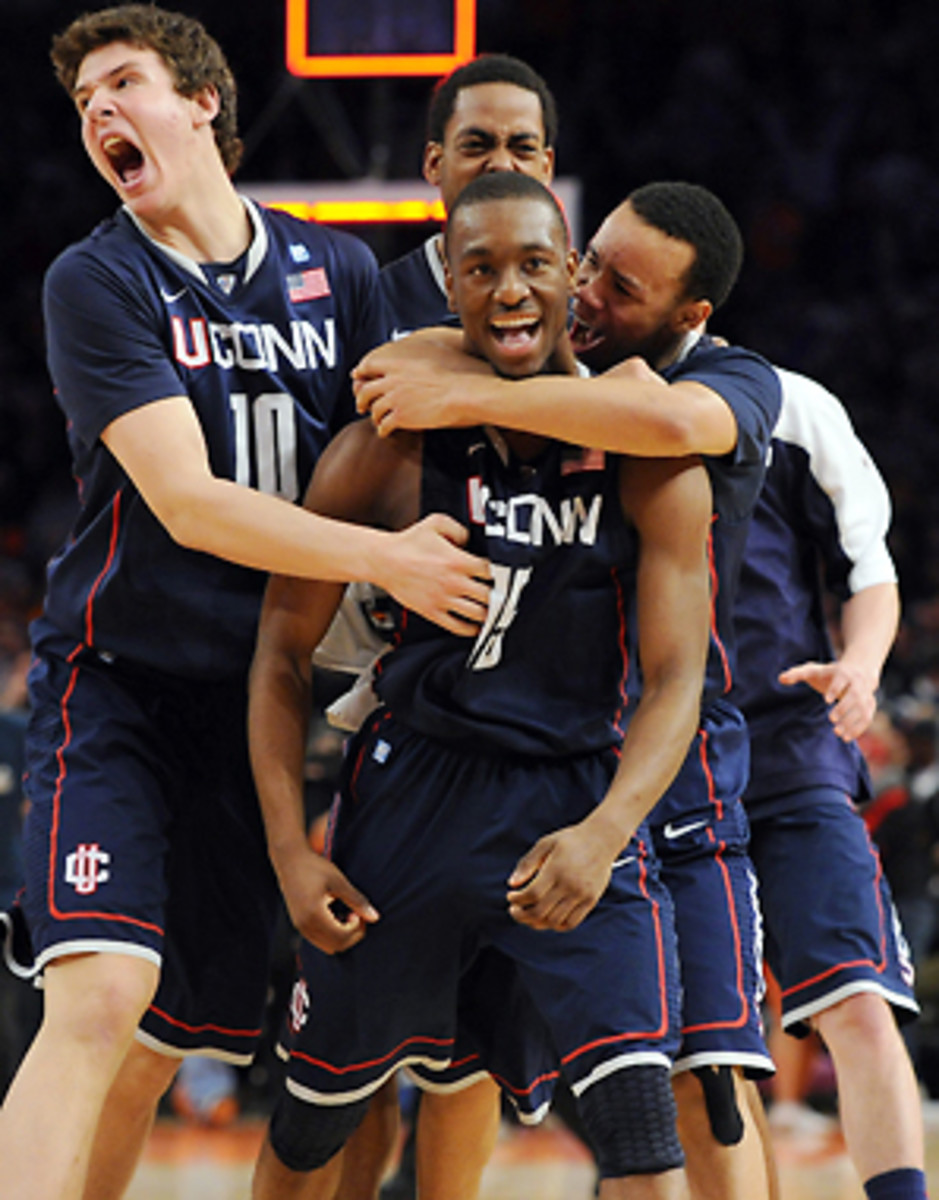March Madness is must-watch TV, but also exposes NCAA's hypocrisy
The month of March gives us a chance to enjoy the greatest, truest, most treasured activity in American culture:
Selling your soul to get on television.
Before we all dive too deep into the joys of March Madness -- and trust me, I'll be diving off the high board -- let's acknowledge the hypocrisy and absurdity here. And before you think "NCAA hypocrisy? BORRR-IIIIING!" please listen up. This might be bigger and more corrosive than you realize. It even extends to another college sport you probably enjoy watching. (HINT: It's the other college sport you probably enjoy watching.)
First, the hypocrisy:
This week, Connecticut has already played Big East tournament games on Tuesday, Wednesday and Thursday in New York City, with another one coming Friday, and maybe (they hope) Saturday. No NBA team ever has to play five days in a row, and those guys are professionals. Yet the 16-team Big East -- apparently the Big is more important than the East -- has no problem asking its college players to play five straight days if necessary. Yes, these are college kids, but five straight games takes a toll on your body no matter how great an athlete you are.
And when the NCAA tournament starts next week, players might as well be registered for classes on Pluto for as much as they'll be able to attend them. Games start Thursday, but teams have to arrive two days ahead of time, so they can perform the highly educational tasks of dunking in front of 20,000 people at an open practice and talking to reporters in meeting rooms.
So if, for example, UConn makes the Final Four, the Huskies can say goodbye to a month of classes.
Now, for the absurdity:
There are many reasons college football does not have a playoff system, and some are more legitimate than others. But the most absurd reason given is that players would miss too much class time. Considering that the NCAA tournament is essentially one giant game of hooky, it's laughable to say that a college football playoff would force players to miss too much class time. College football has a lot of problems, but forcing players to miss class time is not one of them.
College football stadiums hold four or five times as many spectators as basketball arenas, and ticket prices are almost always higher. The television revenue from the regular season is much higher than it is in basketball. If the NCAA depended on TV money from a college football playoff to keep the sport, the NCAA would gladly grab players by the collar and pull them out of midterms. That's what it does in basketball.
And speaking of relying on TV money from a playoff: As you were watching the endless parade of tiny-conference tournaments this week, did you stop and ask yourself: WHAT THE HELL ARE THEY DOING?
It's a good question. Of course we all accept that the power conferences will hold postseason tournaments to determine their automatic bid. Why not? Kansas and Ohio State are going to the NCAA tournament regardless of whether they win the Big 12 and Big Ten tournaments, respectively. There is no harm done when they participate.
But what about the mid-majors? (I love that the NCAA is divided into power conferences and mid-majors. It's like giving your best students an A-plus and your worst students an A-half-plus.) Why do one-bid leagues hold postseason tournaments to determine who gets an automatic bid?
You can't say they want to determine a champion "on the floor" because they have already done that. Why did teams like Long Island University, which went 16-2 to win the Northeast Conference by three games, have to win a postseason tournament to prove it was the best team in its league? LIU beat Robert Morris in overtime to clinch the bid, but the Blackbirds should have been in before that. But hey, the game was on TV.
Those tournaments make the NCAA tournament worse, because we don't get the best possible underdogs. The right way to determine a champion of a one-bid league is a regular season. And if there is a tie, do what the Ivy League will do this weekend with Harvard and Princeton: have the teams play a one-game playoff. In the Ivy's case, the winner gets an NCAA tournament berth and the loser gets to take over a company and fire half its employees. (If the loser is Harvard, there is actually a chance at an at-large bid to the tournament, which would be rare and kind of awesome.)
The Ivy League does not have a postseason tournament, because the Ivy is not obsessed with getting TV money or even getting on TV. But the rest of the country is, and there is all sorts of collateral damage. All I'm saying is you should think about it and ... hey, did you just roll your eyes and reach for the remote?






